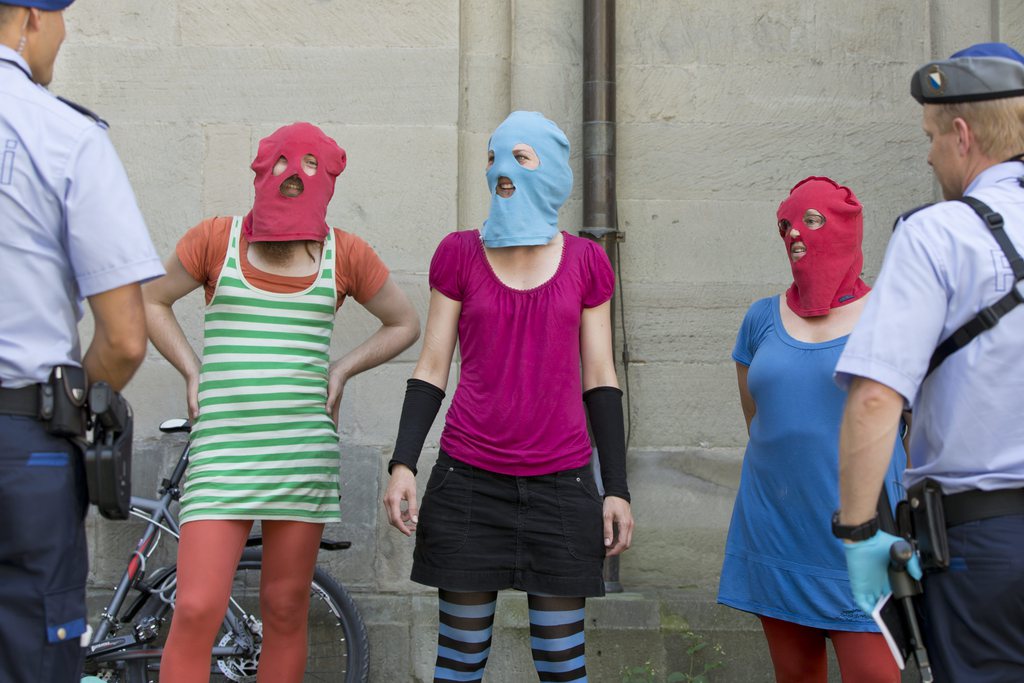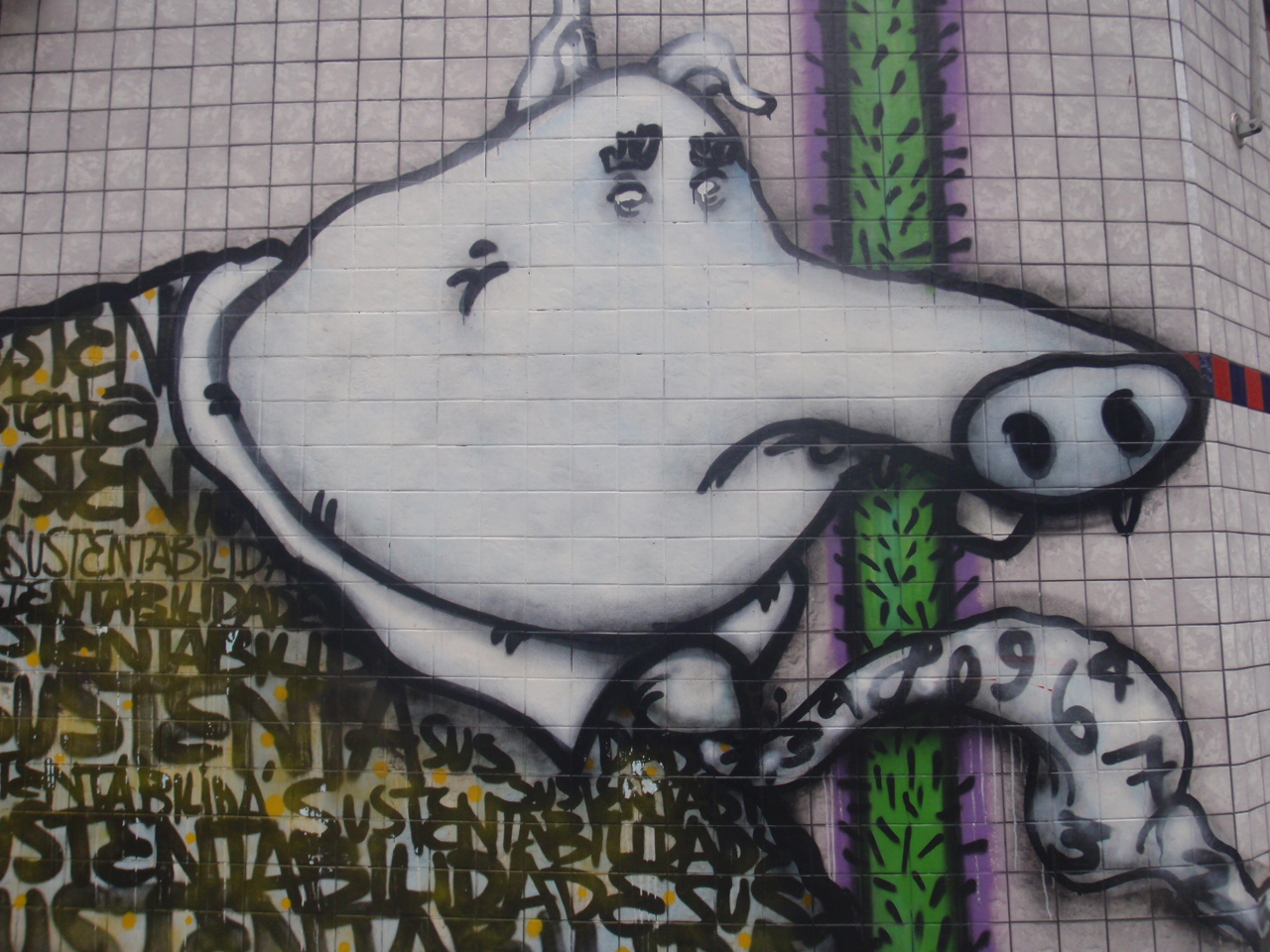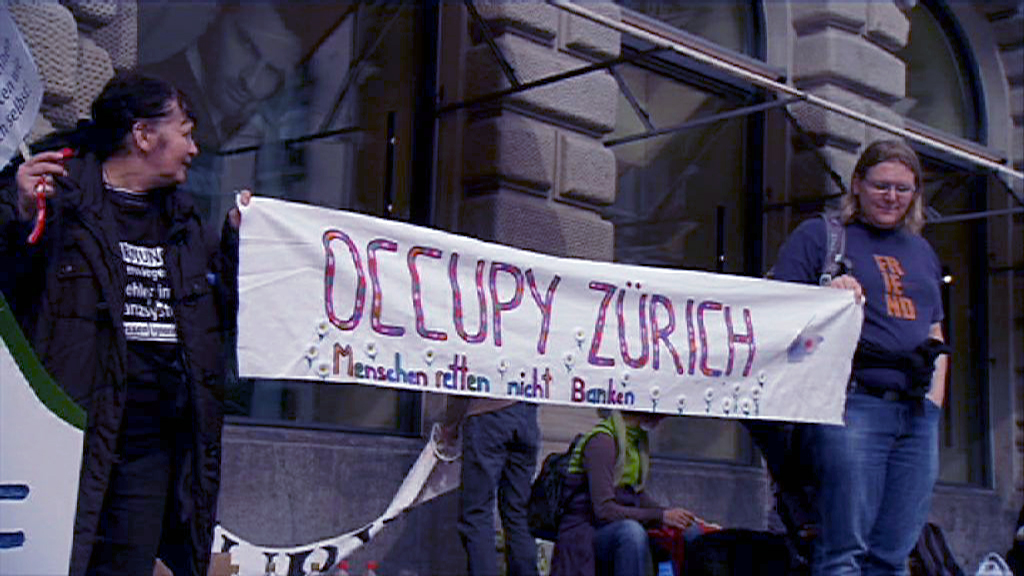The rise and rise of political activism

From the Arab Spring to demonstrations against President Vladimir Putin or the World Economic Forum in Davos, people are turning to more unconventional means of protest like graffiti, flash mobs or blogs. A cross-border phenomenon.
Occupy Wall Street or flash mobs (gatherings quickly organised online) can be forms of political participation. Citizens try to shape society in this way, according to Swiss political scientist Dorothée de Nève and co-author Tina Olteanu, whose German-language book Political Participation Beyond Convention was recently launched in Berlin.
swissinfo.ch: What are the conventional and unconventional forms of political participation?
Tina Olteanu: Elections, direct democracy votes and petitions, for example, are conventional – forms of participation which are explicitly expected of citizens.
The term conventional is however difficult to define, because convention is not fixed but rather continually in flux. Some things that were considered unconventional in the past have since become conventional. Demonstrations for example. What is conventional or unconventional depends on cultural and social norms.
Our goal is to look at forms of political participation that are often overlooked by researchers, or which are so new that research has not yet taken them into account.
swissinfo.ch: You come to the conclusion that unconventional political participation is very popular. But how widespread are graffiti and flash mobs?
T.O.: It is difficult to put it in figures. But in the streets one sees, for example, how widespread and diverse graffiti can be and how political its content. Citizens who would not otherwise attend political events are often mobilised by flash mobs. All these forms of participation give citizens a political voice.
Dorothée de Nève: These participatory instruments come and go: at some point they are hip, then they become normal and not used so intensively. Finally new ideas take over.
If you take our definition of political participation, you could say that all citizens are active in one form or another. In the end, we believe everyone begins at some point to reveal his or her true interests – even when they are in non-political associations, for example a beekeepers’ association. They don’t see it as a political battle but as a commitment to bees.
swissinfo.ch: Could graffiti and flash mobs also been seen as a means to address the democratic deficit in many European countries?
D.d.N.: It is not a means, not a “medication” but rather an indication that the “illness” is not half as advanced as we thought. This certainly does not mean that the democratic crisis is off the agenda. We know for example that in an established democracy there is a clear representation gap for the younger generation.
The term flash mob describes a short, seemingly spontaneous gathering of people in a public or partly public place, in which the participants don’t know each other and do unusual and seemingly random things. The participants use mobile phones and the Internet to organise themselves.
Occupy Wall Street is a protest movement that started in the United States in October 2011. The participants erected a tent village in the middle of New York and protested against social inequalities, the record of the banks and the influence of the economy on politics. They happened expressly in relation to the occupation of Tahrir Sqare in Egypt during the Arab Spring.
swissinfo.ch: Could unconventional forms of participation fill this gap?
D.d.N.: With the forms of participation we examined, we established first that people are interested in politics. They have ideas how things should be. They criticise political situations, processes and actors and bring their own themes into the debate.
The power-broking lies, however, with the central political institutions, companies and lobby groups. We cannot ignore this and say, ‘It doesn’t matter that people don’t vote – they spray graffiti.’ It’s not that simple.
swissinfo.ch: Are there differences between unconventional political participation in different countries?
D.d.N.: We found identical graffiti in different places – the same elk in Vienna and Marseille. Because unconventional participation is not tied to certain constitutions or laws there is a lot of exchange. It’s also about a transfer of ideas and know-how, which can be taken as having an impact on the political process.
Critical consumer behaviour is in this context an interesting example. Multinationals react very sensitively to this because they understand the implications. Consumers worldwide can react very quickly to what appears to be a local small-town protest. IKEA is a good example with its catalogue in Saudi Arabia, which had women removed from it. IKEA reacted immediately to the international protests.
T.O.: The solidarity aspect is also important. The international expressions of solidarity with the Russian punk band Pussy Riot are a good example. But for the Occupy Wall Street movement the expressions of solidarity towards North Africa were also very important – as it was the other way around. These cases show that solidarity stretches across international borders and people are developing a type of common outlook when it comes to certain controversial themes.
The Swiss political scientist Dorothée de Nève currently holds a visiting professorship at the Institute for Political Science at the Distance University of Hagen.
Together with her colleague Tina Olteanu from the Institute of Political Science at the University of Vienna, she has already published several research papers.
The book Political Participation Beyond Convention is published in German by Budrich Verlag.
swissinfo.ch: Would you characterise the protests in the Arab world as unconventional?
D.d.N.: They have to be considered in a different way because it did not involve democratic states and the conventions there are so much narrower. Even a gathering of people in a public space is considered a violation of convention. Demonstrations which are considered normal here are therefore unconventional in Cairo’s Tahrir Square.
T.O.: We differentiate in the book between legitimate and illegitimate forms of participation. For us, protests in North Africa are completely legitimate. We believe that citizens have the right to express their opinions. But from the point of view of the rulers in these autocratic regimes it is of course completely illegitimate.
(Translated from German by Clare O’Dea)

In compliance with the JTI standards
More: SWI swissinfo.ch certified by the Journalism Trust Initiative


You can find an overview of ongoing debates with our journalists here . Please join us!
If you want to start a conversation about a topic raised in this article or want to report factual errors, email us at english@swissinfo.ch.